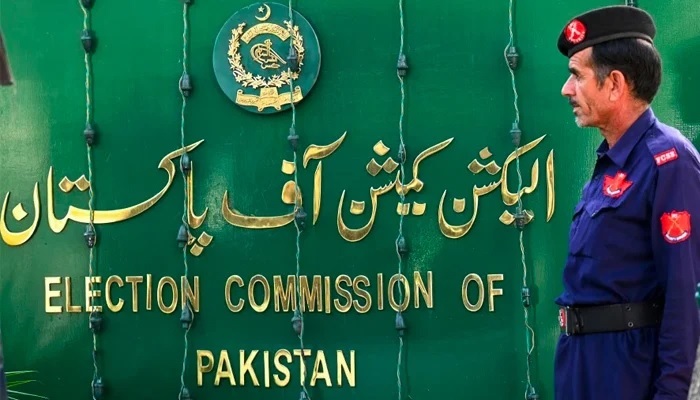Reserved Seats
ISLAMABAD: Ten days after the Supreme Court ordered the Election Commission of Pakistan (ECP) to immediately enforce its ruling regarding the eligibility of Pakistan Tehreek-e-Insaf (PTI) for reserved seats in both the national and provincial assemblies, the ECP is set to convene another meeting on Tuesday.
The purpose of this meeting is to consult with legal experts on how to proceed with the implementation of the court’s verdict.
Sources informed that the ECP had already been holding daily meetings throughout the previous week to discuss a legal dilemma that emerged following a recent amendment to the Elections Act by Parliament. During these meetings, the commission also consulted legal experts to assess the situation.
A source further revealed that consultations with legal experts continued on Monday. However, with the detailed judgement of the Supreme Court now available, the commission will meet again on Tuesday to seek further legal opinions and address the new developments.
The Supreme Court, in its September 14 ruling, had ordered the immediate implementation of its majority judgement on the reserved seats case. The court also warned the ECP of consequences if it failed to comply with the order.
During the ECP’s meetings last week, legal challenges were raised, including the claim that PTI lacked an organizational structure.
Additionally, the law wing of the ECP referred to a contentious election law that appears to undermine the Supreme Court’s verdict and diminish PTI’s potential strength in parliament. This law had been rushed through both houses of parliament in a single day last month.
The legal expert consulted by the ECP echoed similar concerns. According to the new amendment, a political party would not be allocated reserved seats for women and non-Muslim candidates if it failed to submit its list of candidates within the specified deadline.
The amendment, which has retrospective effect, also stipulates that candidates would be regarded as independent lawmakers if they had not filed a declaration with the returning officer regarding their affiliation with a political party before requesting an election symbol.
The changes to Sections 66 and 104 of the Elections Act further include provisions stating that these amendments take precedence over any court rulings, including those made by the Supreme Court. Despite the Supreme Court’s September 14 order, the ECP has not yet acted on it.
Adding to the legal complexity, National Assembly Speaker Sardar Ayaz Sadiq wrote a letter to the Chief Election Commissioner, Sikandar Sultan Raja, last week, urging him not to implement the Supreme Court’s judgement on reserved seats.
In his letter, the speaker argued that since the judgement was based on the previous law before the recent amendment, it could no longer be applied.
He stressed that the amended Elections Act should take precedence and that the ECP must uphold the principles of democracy and parliamentary supremacy.
On the same day, two PML-N lawmakers submitted a petition to the ECP, requesting that the commission declare any political party that failed to submit its reserved seat list within the required time as ineligible for those seats.
The petition also urged the ECP to declare that independent candidates who had once declared their party affiliation could not change or withdraw that declaration.
A senior ECP official expressed concern about the Supreme Court’s judgement, stating that it had effectively nullified the Elections Act. He questioned under what legal framework the ECP should now operate, going so far as to remark that the commission had become a “redundant body.”
He suggested that the Supreme Court had essentially taken over the ECP’s functions and quipped that the court might as well declare the commission as its own branch.


